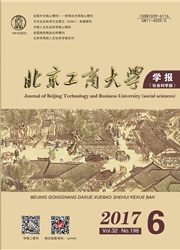

 中文摘要:
中文摘要:
随着人民币国际化的推进和“一带一路”战略的逐步实施,使得中国企业跨境投资增多,外汇风险加大,很多企业尝试使用外汇衍生品来对冲风险。文章以2007-2014年中国跨境投资企业为例,基于债务税盾的视角,使用“中介效应”模型和倾向得分匹配法(PSM)研究了中国跨境投资企业外;12风险对冲的效果。研究发现:外汇风险对冲能增加企业价值,普通OLS回归结果显示外汇风险对冲可给企业带来7.5%的价值溢价,在使用PSM方法控制了内生性之后.价值溢价更是高达10.40%;外汇风险对冲能增加企业的债务税盾,带来节税收益,OLS结果显示外汇风险对冲可使企业债务税盾平均增加60.4%,即使用PSM方法控制内生性之后,发现仍可增加39.85%;高跨境投资额企业的外汇风险对冲能显著提升企业价值和债务税盾,但低跨境投资额企业的外;12风险对冲效果不显著。
 英文摘要:
英文摘要:
With the promotion of the internationalization of RMB and the gradual implementation of "One Belt and One Road" strategy, cross-border investments of Chinese enterprises have risen. As the foreign exchange risks gradually increase, more and more Chinese enterprises attempt to hedge the risks by using foreign exchange derivatives. With the Chinese cross-bor- der investment enterprises from 2007 to 2014 as examples, this paper analyzed the effect of foreign exchange hedging of Chinese cross-border investment enterprises employing "Intermediary Effect" model and Propensity Score Matching theory (PSM) from the perspective of tax shield of debts. This research reveals that: foreign exchange hedging can increase firm value: the normal OLS regression analysis demonstrates that foreign exchange hedging brings 7.5% value premium to enterprises and the value pre- mium even moves up to 10. 4% after controlling the endogenous bias by PSM ; The foreign exchange hedging can enhance the enterprises' tax shield of debts and bring benefit from tax saving: the normal OLS regression analysis shows that foreign exchange hedging increases enterprises' tax shield of debts at an average rate of 60.4% and a growth of 39.85% still exists even if applying PSM to control endogenous bias; The foreign exchange hedging of enterprises with high cross-border investments can lead to an obvious improvement of enterprises' value and tax shield of debts, while the effects of foreign exchange hedging of the enterprises with low cross-border investments are not remarkable.
 同期刊论文项目
同期刊论文项目
 同项目期刊论文
同项目期刊论文
 期刊信息
期刊信息
